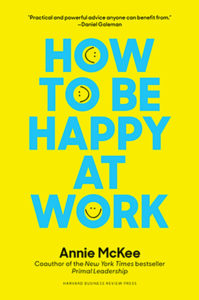We think we should have relationships that are distant, polite, and guarded. But we want much more than that. We want to feel safe to be ourselves, we want to enjoy one another, and we want to like people at work. We also want them to like us. If we don’t like people (or they don’t like us), it’s going to be hard to find common ground, making it even harder to work through disagreements and conflict. Today, I share David’s story to illustrate this notion.
David has worked at two major financial services firms, seen one nearly implode, and helped the other rise from the ashes of the Great Recession. In both roles David led managers and was in charge of the thousands of financial advisors who provided information and investment strategies to the firm’s’ clients. In these jobs, as in every job he’s had in the twenty years I’ve known him, David has led with a signature strength: a focus on people and relationships. He talked about how he learned this early on from a mentor—a tough, no-nonsense office manager. No one would have called this man warm and fuzzy, but he understood the power of relationships at work.
A talent for investing money might get you in the client’s door, he told David, but that is not enough. If people are going to trust you with their money, they want to know you will tell them the truth. They want to know you respect them and genuinely care about their needs and hopes.
Money is personal; it represents our success, and it enables us to feel secure about our own and our family’s future. If clients think you’re pretending to care about them, or that you are focused on your own success over theirs, they’ll show you the door.
David took what he learned about how to treat clients and applied it to leading the financial advisors and the managers who reported directly to him. He recognized that what was true for customers is also true in the workplace: if employees suspect that someone doesn’t respect or care about them or their goals, they will likely become self-protective. And, David knows, an instrumental approach to people always backfires eventually because it breeds distrust. Relationships like these don’t help us to be effective. In fact, they sap our energy and drive people away—especially when times are tough and bad news is on the horizon.
What works, David says, are relationships based on mutual respect, genuine understanding of one another, and caring. You’ve got to build trust. You’ve got to hold yourself to high standards in values and ethics and assume others will do the same. If these conditions are in place, and they like you, then you’ve got a magic formula that will carry you through the good times and bad.
I hear this when I ask people what they want in their relationships at work. They also say that these qualities are even more important when we face a crisis, as David did some years back.
Leaders at his company had promised much-needed changes to employees across the company. Everyone was excited about the new technology they would get and the pay structure was going to be more equitable. Then, the market shifted and the changes had to be delayed—maybe indefinitely. As a senior manager, David understood the logic, but he knew his people would be devastated. He worried that the best associates would leave to join the competition. What was he going to tell them?
Many leaders have to share bad news with their people. What was different about this situation, however, was that the associates respected and trusted David. Trust and respect are conditions that ensured that David could be honest with associates and he knew they would believe him. He was able to share how he felt about the situation and treat them as adults who could see the dilemma and deal with disappointments. And because David had invested a lot in building good relationships, they knew and liked him, too. This, David says, is a bonus—a bonus that allows you to take the conversation to the next level and support people even when things are really difficult.
In this situation, he was able to let them know he understood their feelings and concerns, and he helped them turn their attention to the future. As he put it, in situations like this, “You have to make people feel that they belong to a group they can be proud of, even if it’s hard to see a bright spot on the horizon. And, if it gets ugly (as it often does when a company is in crisis), don’t sink to the lowest common denominator. Instead, act in a way that isn’t going to hurt the people who might not be dealing well with the situation. Try to understand where they are coming from. At the least, you’ll know what you’re dealing with. At best, you can reach them and build a bridge.”
David had created relationships that were strong and friendly before crisis hit. Trust was already there. So was respect. And people knew that he cared about them.
Instead of running away from one another in the face of the sluggish and scary economy, people came together. Instead of hunkering down and competing, people joined forces. Instead of giving in to the pressure or succumbing to stress and misery, people found ways to have fun. They created a new kind of relationship at work—one that looks more like friendship than mere colleague-ship.
Excerpted from How to Be Happy at Work by Annie McKee, Harvard Business Review Press (September 5, 2017)

Based on extensive research and decades of experience with leaders, How to Be Happy at Work deepens our understanding of what it means to be truly fulfilled and effective at work and provides clear, practical advice and instruction for how to get there―no matter what job you have.